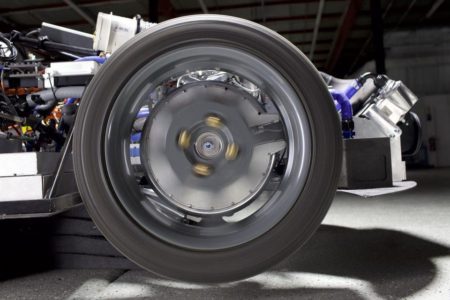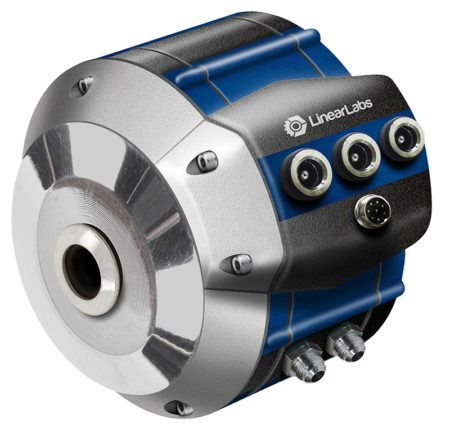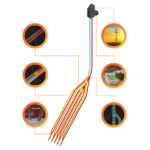August 29, 2019 – In a world trying to wean itself off burning hydrocarbons for energy in transportation, there are now familiar names like Tesla disrupting the automotive industry. But what about some unfamiliar names? Linear Labs and Indigo are two companies with technology that could set the transportation world on its ear and change the paradigm of the electric-powered automobile forever.
Electric motors are ubiquitous. Whether we are talking about a shaver, hairdryer, vacuum cleaner or other devices where we convert energy input by using its electromagnetic properties to cause something to rotate, we are extremely dependent in this modern age on the electric motor.
In automobiles back at the beginning of the 20th century, electric-powered vehicles vied with the internal combustion engine for transportation supremacy. Electric cars carried a heavy battery pack which provided the electrical energy input that could be applied to axles connected to wheels to move the vehicles. In some cases, the motors were directly incorporated into the wheels themselves dispensing with the need for anything but wires connecting the battery to them.
Not much has changed in the technology since it was first conceived. Yet two new players in the United States may alter the status quo.
Linear Labs Redesigns the Electric Motor
A Fort Worth, Texas-based company, Linear Labs‘ mission has been from the outset to develop a new type of electric motor and generators that produce more power from less energy input. Called the Hunstable Electric Turbine (HET), it is described as a magnetic torque tunnel, the motor of the future, producing two times the torque, and three times the power of any competitive technology. (If unfamiliar with the term torque, it describes the measurable per-revolution movement caused by the electric motor.)
The HET packs more punch into a smaller in size, uses less material in manufacturing, is lighter and requires a much smaller battery pack to achieve range, is cheaper, and draws less power. It is ideal for any variable speed application requirement without requiring a gearbox mechanism making it a great choice for transportation and power generation. Its form factor can fit small motorized platforms such as scooters and drones as well as larger motorized transportation such as motorcycles, cars, and trucks. The HET can be installed in wind turbine power generation systems, locomotives, hydro-electric power plants, and be the motor for HVAC systems in residential and commercial buildings.
Indigo Goes a Different Route in Tackling Electric Mobility
Indigo Technologies is a spinoff of the Massachusetts Institute of Technology (MIT) located in Cambridge, Massachusetts. Founded in 2010, its Traction T1 Propulsion System is an in-wheel electric motor that CEO Brian Hemond states, “replaces engines, differentials, driveshafts, brake lines, dampers, and many other components of traditional vehicles.” It requires far less power than current electric motors on the market, a mere 48 volts versus 400. It is small and light and can be installed to power individual wheels. Vehicles that incorporate the Traction T1 will weigh less and be unconstrained by the mechanical requirements associated with having a powertrain. The company states that a Traction T1 powered vehicle would require 10% of the power needed by an internal-combustion-engine vehicle on the road and even at highway speeds.
The Traction T1 even contains an integrated suspension system with no separate actuator requirement to ensure a smooth ride, making this in-wheel motor unique in the industry. In the past in-wheel motor-powered vehicles have had performance issues in terms of vehicle dynamics that can cause passengers to experience motion sickness.
Like Linear Labs, Indigo is not about to do the Tesla thing and build the next generation electric-powered vehicle. Instead, the company is offering its technology to manufacturers of what it believes will be a new breed of designers aimed at the autonomous vehicle market. These will be new types of transportation which will no longer require heavy chassis, axles, gearboxes, steering racks, and under the hood motors. They will be designed for function, and passenger safety, and comfort.

















